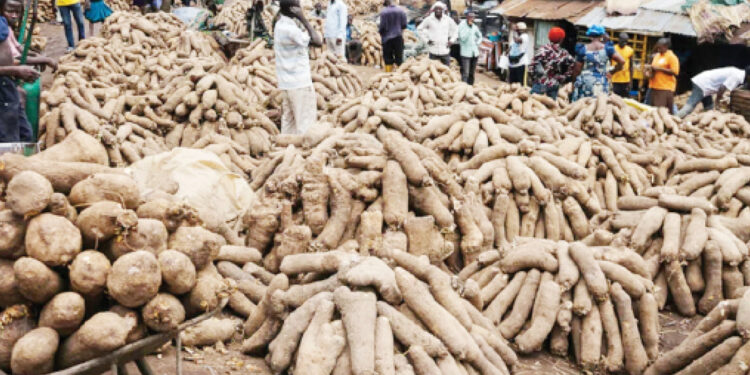Virtually every Nigerian either likes yam or has eaten it-or its byproducts at some point in their life.
The good news is that yam can be cultivated in almost every part of Nigeria, although certain states are particularly known for their expertise in yam farming. It’s also a lucrative agricultural venture with strong returns on investmaent.
In addition, yam byproducts are also profitable, offering significant income opportunities for those engaged in their production and sale. As such, investing in yam and its wide range of benefits is likely to yield positive results.
In addition to addressing food insecurity, yam cultivation is also creating jobs, generating wealth, and helping to reduce poverty for those investing in the sector.
With the hospitality industry rapidly expanding—evidenced by the growing number of eateries and hotels across the country—yam has become a staple on menus due to its widespread consumer appeal and versatility.
While yam is grown in nearly all states across Nigeria, investors can find the most affordable options in Edo, Delta, Taraba, Adamawa, Cross River, Oyo, Ekiti, and Imo States.
While yam can be eaten either roasted which could go with red oil alone, with vegetables; cooked yam can also be eaten with vegetables or stew. Fried yam, Yam Pourage, Pounded yam are other staple foods that are made out of Yam.
Particularly also, Yam can be converted into powder and be used as Yam powder, popularly called ‘Elubo’ in the South Western Nigeria.
In a chat with LEADERSHIP, Dr Innocent Ihenncho Ogbonna said, one of the best ways to enjoy investment in yam byproducts is either by embarking on farming by one’s self or have a trusted hand from whom you can get supply when you need yam.
According to Innocent, who is into part time lecturing and a farmer, “don’t forget that yam is a perishable product which can spoil. So, buying yam in large quantity for sales is not advisable or else one may run into wastage.”
On his own part, a civil servant and a farmer said: “I will advise anyone who has interest in yam byproducts to have a personal farm or adopt a farm from the owner of such farm in order to enjoy the investment.
“Investor can start his/her own small scale yam farm with N20,000, that can stay within your own compound and with this, one can go into getting byproducts for few customers.
Business Capital/Profit
“For large scale yam farming, one will need additional hands and larger place to plant yam. But talking of yam byproducts, investor can use at least N150,000 and can get N500, 000 as profit at the end of the day.”



